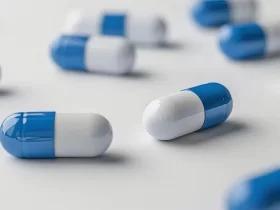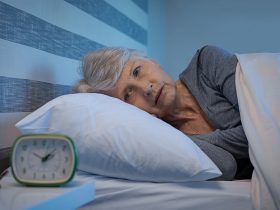Increased risk for consumption seen during periods of rising estradiol levels
By Lori Solomon HealthDay Reporter
TUESDAY, July 1, 2025 (HealthDay News) — Fluctuations in ovarian sex hormones across the menstrual cycle may influence women’s likelihood of alcohol consumption, according to a study presented at the annual scientific meeting of the Research Society on Alcohol, held June 21 to 25 in New Orleans.
Layne Robinson, from University of Kentucky in Lexington, and colleagues assessed changes in alcohol intake and craving across the menstrual cycle in a sample of young adult women or individuals assigned female at birth. The analysis included 61 naturally cycling women (aged 21 to 35 years) who regularly drink alcohol at least twice weekly and provided salivary samples for hormone analyses for 35 consecutive days.
The researchers found that generalized additive mixed models showed a significant fixed effect of cycle phase on craving across and within participants. During the midfollicular phase, craving levels increased, while during the late follicular and periovulatory phases, levels decreased but rose again during the midluteal phase and declined during the late luteal phase. There were no significant fixed effects of cycle phase for the probability of drinking or binge drinking between participants. Marginal effects showed that drinking and binge drinking probabilities rose during the follicular phase (after menses onset), peaked around ovulation, and declined during the luteal phase. While hormonal effects of rising estradiol were marginal, the pattern suggests that rising estradiol levels may be risky for craving and drinking in women.
“If women were aware of risky periods for drinking and alcohol craving, such as certain menstrual cycle phases or reproductive periods, they may be able to take precautions to reduce their drinking,” Robinson said in a statement. “Mental health professionals would be able to more accurately assess and understand women experiencing alcohol-related problems. It is also possible that hormone-stabilizing medications could be successful in aiding treatment for alcohol use disorders in women.”
Abstract No. 041
Copyright © 2025 HealthDay. All rights reserved.







